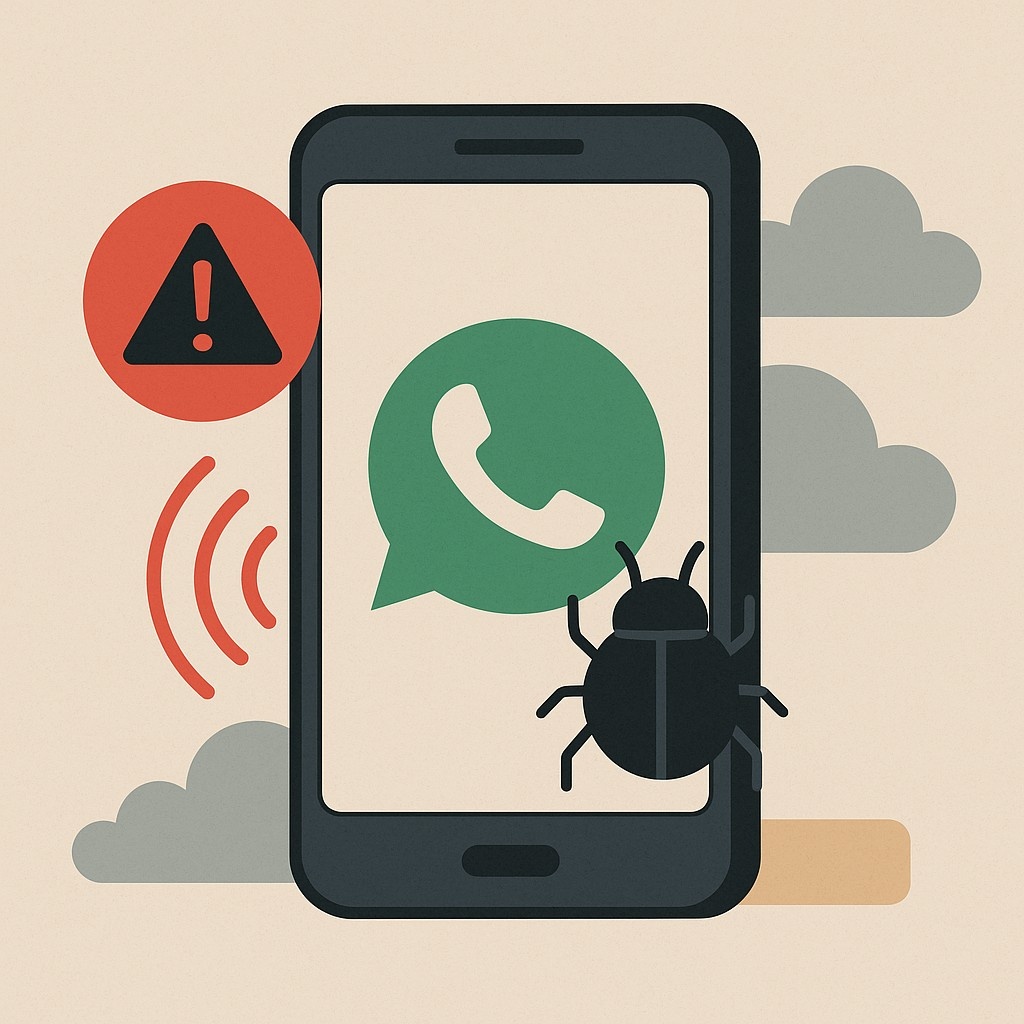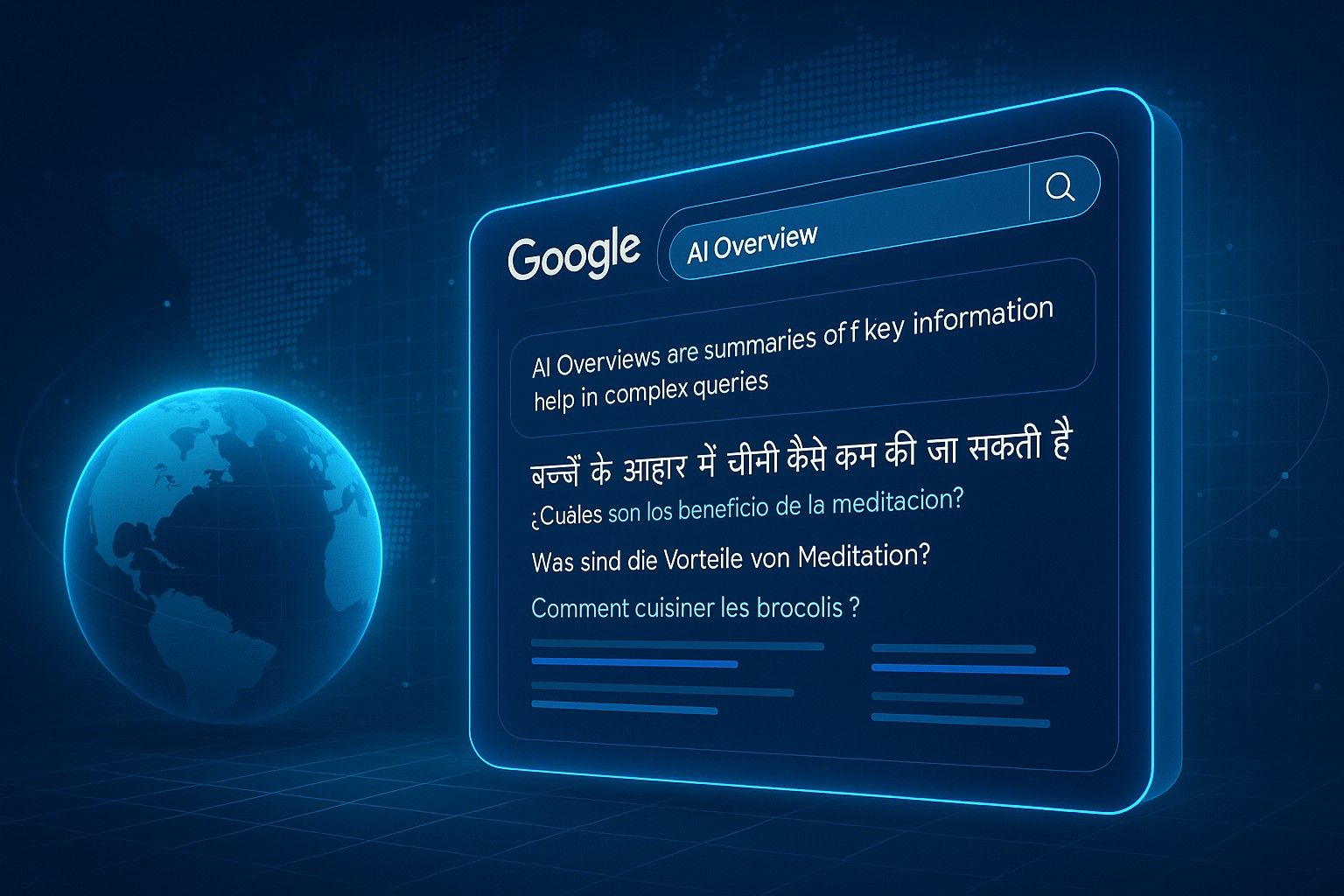WhatsApp Fixes Zero-Click Spyware Exploit on iPhones
A silent, dangerous vulnerability allowed attackers to infect devices without any user interaction.
WhatsApp, the world’s most popular encrypted messaging app, has quietly patched one of the most dangerous bugs in recent memory—a zero-click vulnerability that allowed attackers to infect iPhones and Macs with spyware simply by sending a message. Victims didn’t need to open the message, click a link, or even notice anything unusual. The exploit worked silently in the background, giving hackers direct access to private data.
The flaw, tracked as CVE-2025-55177, was discovered earlier this year and exploited in a live spyware campaign that lasted almost three months. When combined with another Apple software bug (CVE-2025-43300), it created a powerful attack chain capable of bypassing the protections of both WhatsApp and iOS.
How the Attack Worked
This was no ordinary hack. Security researchers call it a zero-click exploit—the most feared type of cyberattack. All it took was a specially crafted WhatsApp message. Once delivered to the victim’s phone, the malware executed without any interaction.
- The WhatsApp bug triggered hidden code execution inside the app.
- The Apple flaw, buried in the ImageIO framework, allowed memory corruption and gave attackers a path to install spyware.
- Together, the two vulnerabilities enabled hackers to silently access messages, photos, calls, and potentially microphone and camera feeds.
Apple described the attack as “extremely sophisticated”, the kind usually seen in state-sponsored espionage.
Who Was Targeted?
According to Amnesty International’s Security Lab, the spyware campaign began in late May 2025 and focused on high-risk individuals: journalists, activists, human-rights defenders, and political figures.
WhatsApp confirmed it had sent threat notifications to fewer than 200 people worldwide, warning them that their devices may have been compromised. The low number shows this was not mass surveillance but a surgical espionage operation, aimed at gathering intelligence from specific individuals.
WhatsApp and Apple’s Response
The companies acted quickly once the flaws were uncovered:
- Apple quietly patched CVE-2025-43300 in mid-August with iOS, iPadOS, and macOS updates. It urged users to update immediately, especially those at higher risk.
- Meta rolled out fixes for WhatsApp on iOS and macOS by the end of August. Versions 2.25.21.73 (WhatsApp iOS) and 2.25.21.78 (Business iOS/Mac) closed the loophole.
Both companies coordinated their patches to stop the exploit chain. WhatsApp also encouraged potentially exposed users to factory reset their devices to fully remove any spyware that may have been installed.
Lessons From the Attack
1. Encryption Isn’t Enough
End-to-end encryption protects messages in transit, but when spyware sits on the device itself, encryption is bypassed. This attack shows that even the most secure messaging platforms can be undermined if the device is compromised.
2. Zero-Click Exploits Are the New Frontier
Unlike phishing attacks, which rely on tricking users into clicking a malicious link, zero-click exploits require nothing from the victim. They are invisible and nearly impossible to detect without advanced forensic tools.
3. Civil Society Is at Risk
The targets—activists, journalists, opposition voices—highlight a worrying pattern. These groups are consistently in the crosshairs of spyware campaigns, raising human-rights concerns worldwide.
4. Spyware Arms Race Continues
Commercial spyware vendors and nation-states are in a constant race with platform providers like Apple, Meta, and Google. Each patch is met with new exploits, creating a never-ending cycle.
What Users Should Do
To protect yourself, follow these critical steps:
- Update immediately: Install the latest WhatsApp and iOS/macOS versions.
- Enable Lockdown Mode (iOS): Apple’s optional feature reduces the attack surface for high-risk individuals.
- Stay alert: Watch for official threat notifications from WhatsApp or Apple.
- Consider a reset: If you suspect compromise, factory reset your device and restore only from clean backups.
Why This Matters for the Future
The WhatsApp zero-click spyware exploit is more than a technical glitch—it’s a warning. It shows how attackers can combine small flaws into powerful attack chains. It highlights the vulnerability of those who most need protection—journalists, activists, dissidents. And it proves that the cybersecurity battle is shifting from apps to devices themselves.
For users, the message is simple: security is no longer optional. For governments, the pressure is clear: the spyware industry cannot remain unregulated forever. And for tech companies like Apple and Meta, this episode is a reminder that their job is never done.















